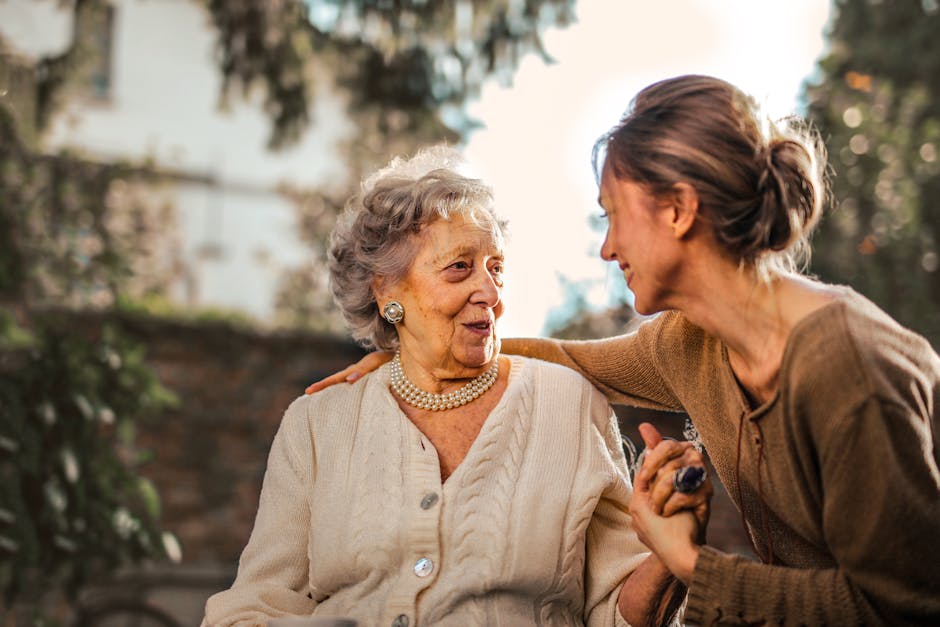Importance of personalization in senior care services
Personalization in senior care services is crucial for providing individualized care that meets the unique needs of each senior. When care is personalized, it focuses on the specific preferences, abilities, and challenges of the individual, leading to a more tailored and effective care experience. Personalized care can improve the quality of life for seniors by promoting independence, enhancing well-being, and creating a sense of dignity and respect. By understanding and addressing the personal needs of each senior, caregivers can build meaningful relationships and foster a sense of trust and security. Personalization also plays a key role in promoting emotional and social engagement, which are essential for maintaining mental and physical health in seniors.
Understanding the needs of senior citizens
To better cater to senior citizens, it’s essential to understand their unique needs. Seniors may require assistance with daily activities, such as bathing, dressing, and preparing meals. Additionally, they may face challenges with mobility and memory. Providing personalized care that addresses these specific needs can greatly enhance the quality of life for seniors. Effective communication and empathetic understanding are key in providing senior care services that truly make a difference.
Tailoring care plans for individual preferences
Personalized care plans in senior care can greatly improve the quality of life for older adults. By tailoring care plans to individual preferences, seniors can receive services that meet their specific needs. This approach ensures that each senior is treated uniquely, taking into account their likes, dislikes, and personal routines. This level of customization can lead to increased comfort, satisfaction, and overall well-being for seniors in care facilities.
Building trust and rapport through personalized care
Personalized care in senior services helps build trust and connection between seniors and their caregivers. When caregivers tailor their approach to meet the specific needs and preferences of each individual, it fosters a sense of understanding and empathy. This personalized touch can enhance communication, improve overall satisfaction, and create a more positive caregiving experience for both seniors and caretakers.
Enhancing quality of life through personalized services
Personalized senior care services focus on tailoring care to meet individual needs, preferences, and goals. By customizing care plans, seniors receive specialized attention that enhances their quality of life. Services such as personalized meal plans, tailored activities, and individualized health care contribute to a more fulfilling and enjoyable experience for seniors. This approach ensures that each senior’s unique requirements are met, promoting overall well-being and happiness.
Benefits of customized care for seniors
Customized care for seniors offers numerous benefits that can significantly improve their quality of life. Personalized care plans tailored to individual needs can result in better health outcomes, increased comfort, and enhanced overall well-being for seniors. By addressing specific requirements and preferences, personalized care can promote greater independence and autonomy among seniors. Additionally, it fosters stronger relationships between caregivers and seniors, leading to more responsive and attentive support. The positive impact of personalized care extends beyond physical health, contributing to emotional and mental well-being.
Implementing personalization in care routines
Personalizing care routines for seniors can greatly improve their quality of life. By tailoring care plans to each individual’s unique needs and preferences, it can create a more engaging and fulfilling experience for seniors. This approach involves taking into account factors such as the senior’s health conditions, dietary requirements, daily routines, and personal interests. Implementing personalization fosters a sense of autonomy and independence, promoting a more positive outlook on their care experience.
Training staff for personalized senior care
It is essential to train staff in personalized senior care to ensure that each individual receives tailored and attentive support. Staff training involves educating caregivers on understanding the unique needs of each senior, building relationships based on trust and empathy, and implementing personalized care plans. Training also covers effective communication techniques, promoting independence while offering assistance, and recognizing and respecting the individual preferences and choices of seniors. Consistent training helps staff provide high-quality, personalized care that enhances the overall well-being and satisfaction of seniors under their care.
Technology and tools for personalized senior services
Technology has brought significant advancements to the field of personalized senior care services. With the aid of innovative tools like remote monitoring devices, wearables, and smart sensors, caregivers can now closely track seniors’ health and activities. These technologies help in ensuring timely assistance, promoting independence, and enhancing overall quality of care provided to seniors. Personalized care plans tailored to individual needs are made possible through the use of electronic data management systems and communication tools. This tech-driven approach not only improves efficiency but also fosters a more proactive and responsive caregiving environment.
Achieving better outcomes with personalized senior care
Personalized senior care means tailoring care plans to the individual needs of each senior. This approach leads to improved health outcomes and a higher quality of life for seniors. By customizing care services to address specific preferences, health conditions, and daily routines, caregivers can ensure seniors receive the best possible support.







